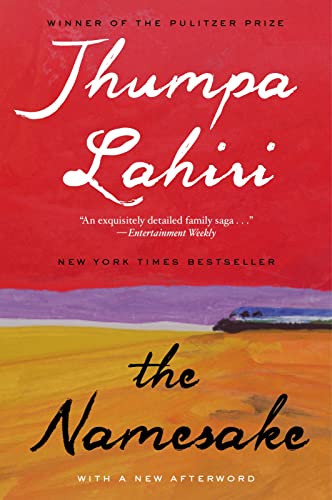Get ready for some laughs and maybe a tear or two as I review Jhumpa Lahiri‘s book. I dive, oops, I mean, I explore her world of identity struggles, family dynamics, and the immigrant experience with a touch of humor and honesty. So, grab a comfy seat as we embark on this journey of personal growth and cultural conflicts in Lahiri’s engrossing tales!
In a nutshell
Jhumpa Lahiri’s book brings readers on an intriguing journey full of identity and cultural crossroads. As a master of the literary fiction genre, Lahiri crafts a narrative that delves into the complex world of immigrant experiences.
The book reflects on themes of family dynamics, cultural adaptation, and the search for personal identity. Her compelling storytelling weaves together tales of struggle and triumph with authenticity and a touch of humor.
This summary has no spoilers, so readers can look forward to uncovering the nuanced layers of her writing themselves.
Identity and Cultural Conflicts: Navigating the Hyphen
Reading Jhumpa Lahiri’s books is like taking a rollercoaster through immigrant life: thrilling, complex, and a bit dizzying. In her tales, we meet characters who navigate the tricky terrain of identity and cultural conflicts. As someone who’s tried to fit into tight jeans after a holiday feast, I get it—identity-struggles can stretch one thin.
Imagine juggling the traditions of your family’s homeland while trying to blend into a new culture. Lahiri’s characters do this with the kind of finesse I wish I had when I attempted to juggle apples at the office party. (Spoiler: it didn’t end well.)
In “The Namesake,” we follow Gogol Ganguli who wrestles with his Indian heritage and American upbringing. His struggle offers insight into how clashing identities impact the sense of self. I had a Gogol Moment myself when I nearly called my boss “mom”—identity confusion at its peak.
Lahiri’s stories speak about cultural expectations versus personal desires. Ever try to explain to your grandmother why kale smoothies are a thing? Exactly. These internal battles make one question, “Where do I belong?” Her narratives are rich with the push-and-pull of belonging and alienation, capturing the immigrant reality with more detail than my grandmother’s apple pie recipe.
If you’re curious about how these cultural conflicts ripple through family relationships, fasten your seatbelt and hold onto that hyphen. Up next, we’re delving into family dynamics and the chaos they can create.
Family Relationships and Dynamics in Jhumpa Lahiri’s Stories
I’ve chewed through plenty of books, but Jhumpa Lahiri really nails family relationships and dynamics like a pro. Her stories invite you to sit at the dinner table of complex families whose love is real, but so are their conflicts. One time, I was reading ‘The Namesake’ and it was like watching my own awkward family reunions unfold, minus the weird dance moves Uncle Roger insists on showing off.
Lahiri’s characters often straddle two worlds. On one side, there’s the tradition-filled, sometimes pressure-cooker, family life. On the other, the allure of independence in a new land. In ‘Interpreter of Maladies,’ you see characters balancing respect for their elders with their own bold ideas, and it’s a high-wire act without a net. But hey, what’s family without a little drama?
Her narratives are like a funny sitcom mixed with a heartfelt drama. You get those moments where family members communicate volumes with a single look – like when Mom gives you that eyebrow raise, and you know you better stop goofing off. But sometimes, folks just don’t click. Lahiri captures those silent dinners and the unspoken sibling rivalries with a precision that hits home.
However, it’s not all sunshine and mango lassis. There are times when you might wish for more character depth or resolution. But even with these hiccups, Lahiri’s portrayal of family is genuine and engaging. So, if you’re ready to explore the intricate dance of familial ties, Lahiri’s work is a great place to start.
Next up, we’ll embark on a journey through the immigrant experience in America. Buckle up, it’s gonna be a wild ride!
Exploring the Immigrant Experience in America with Jhumpa Lahiri
Oh, the immigrant experience! A melting pot of emotions, identities, and a longing for home… It’s like cooking a dish where the spices are too shy to blend. Jhumpa Lahiri has this knack for serving readers a spicy stew of immigrant life in America. I mean, if there was a Michelin star for storytelling, she’d have a whole restaurant full!
In her books, characters often walk a tightrope between two worlds. Picture this: you’re at a party, and you don’t know if you should start a conga line or fix the buffet. That’s how Lahiri’s characters feel, caught between the traditions of their homeland and the pull of new American ways. Her stories show the nitty-gritty details of adapting to American life, like understanding baseball or why everyone is obsessed with pumpkin spice.
I remember trying to explain baseball to my dad, an immigrant himself. After an hour, he still called it ‘cricket with a twist.’ Lahiri nails these little moments. She writes about the everyday struggles and victories of immigrant life with a humor that reminds us all of the awkwardness—and joys—of fitting into new surroundings.
But be warned! Her stories also highlight the loneliness and identity crises that immigrants often face. It’s not all fireworks and apple pie. But even in the somber moments, Lahiri gives a sense of hope and resilience. Next up, let’s chat about how her characters find personal growth and self-discovery, kind of like awakening a hidden superpower!
Personal Growth and Self-Discovery in Jhumpa Lahiri’s Works
It’s no secret that Jhumpa Lahiri has a knack for crafting tales that make you feel like you’ve just found a long-lost diary. Her books are full of characters who embark on personal journeys, and trust me, they don’t even need a GPS. I’ve been reading her works while munching on snacks and sipping on endless cups of coffee, which inevitably results in some deep pondering about my own life — and crumbs in awkward places.
One thing I love about Lahiri’s stories is how her characters often experience self-discovery through the mundane. They don’t need to climb Mount Everest to find themselves; sometimes, a simple trip to the grocery store will do the trick. In one of her most compelling stories, we follow a character who navigates life’s ups and downs, and in the process, encounters surprising revelations about their own identity and desires.
Lahiri’s magic lies in her ability to turn everyday mishaps and small victories into pivotal moments of growth. You might find yourself chuckling at the protagonist’s awkward encounters, but then boom! You’re hit with a profound realization that leaves you questioning your own life choices. Isn’t it funny how fiction can do that?
Personal growth and self-discovery are themes that resonate deeply with readers, and Lahiri delivers them with a mix of wit, warmth, and honesty. That’s why I wholeheartedly recommend picking up one of her books. Just be prepared for some introspective moments — and maybe have a tissue handy if you’re the emotional type.
Conclusion
Wrapping up my review of Jhumpa Lahiri’s work, I must say this: she nails the art of storytelling with a mix of humor and heart. Her books capture the essence of identity and family dynamics, making them relatable to anyone who’s ever tried to understand their place in the world. While some parts may feel repetitive, it doesn’t take away from the overall enjoyment. I’d recommend her books for anyone keen on exploring the nuances of immigrant life and personal growth. So grab a copy, and prepare for a journey filled with laughs, tears, and a few aha moments.



